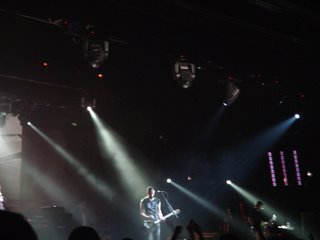Ever notice how solidly console video game controllers are built? It's a tradition left over from the 8 and 16 bit era. Many were the NES and Mega Drive controllers hurled at great force toward the TV screen back in the Travaglia household in the early nineties. The TV might get damaged, the controller cord might be ripped out of the console and cause all of your saved games to be lost, but the controller itself always remained perfectly functional. “Maybe you should go play outside for a while,” my dad would suggest.
“Motherfucker piece of shit cocksucker Ecco the motherfucking dolphin!” I would reply.
The era of two day gaming marathons spent patiently chipping away at some diabolically inclined side scroller is long past for me, but I'm sure many of you still remember the source of all the anguish: the genre known as the fucking platform game. Today's gaming industry has forgotten the traditional platformer, as gamers nowadays don't have the tolerance (or the anal retentiveness) for such titles, so I was surprised when they revived the Prince of Persia series. The first entry in the new series, 'Sands of Time', was a critical success but a commercial failure (an all too common misfortune for good games). The publisher Ubisoft responded by sexing up the sequel, 'Warrior Within', with more mature content (and of course when we say 'mature' we mean marketed towards horny teenagers instead of preteens). As much as the gaming intelligentsia derided this stupid need to appeal to the fourteen year old boy demographic (and the twenty-somethings with the buying habits of fourteen year old boys demographic) it seemed to work. I never played any of the games in the series (except for a very brief go at 'Warrior Within') but the latest instalment, 'The Two Thrones', came free with my new video cards (so I now have two copies, maybe I should have a competition and give one away) and I gave it a whirl.
It turned out to be great fun. The frustrating game mechanics of its old school forebears have been rethought and improved. Platformers have traditionally suffered from a tendency for a single false move to send your character over a cliff to instant death and back to a save point you passed ten minutes ago (if you were lucky enough to have a life left). The new Prince of Persia game still has fundamentally the same game concept: lots of jumping, climbing, swinging, swordfighting and general swashbuckling (only now in 3D), but the obnoxious frequency with which you plummet to an untimely death has been reduced by some nice innovations which also make the gameplay more fun. For example your character will never slip off a platform just because you pushed the controller in the wrong direction. Unless you specifically tell him to jump he will always catch the edge of the platform and allow you to get back on. Maintaining direction while jumping is no longer required, as the game automatically points you toward the nearest valid target and you merely have to worry about the timing and the choice of technique used to get to your destination. It probably sounds like they've made it too easy but it's more that they've stripped away the frustrating fiddly stuff and just left the aspects of platform jumping that actually made those old games fun. You still die often but another nice gameplay gimmick they've introduced in this series is the sands of time, a special power that the Prince has to reverse time (up to a maximum of six times before being recharged), so if you make a mistake a quick button tap pulls the Prince back up out of the bottomless pit so you can have another go. Invaluably handy in a game with arbitrary fixed save points.
The story also warrants a bit of a mention. While predictable, cheesy and full of fun historical trivia (did you know that Babylon was the capitol of Persia?) it is presented much better than the embarrassing efforts of most of it's peers and even contains an interesting plot hook in the form of the Dark Prince. The Dark Prince is the protagonist's evil alter-ego (bought to life by a magic spell gone awry, of course), and as the plot unfolds the Prince periodically transforms physically between his two forms (with different abilities and weaknesses for the player to contend with). It's kind of clever how the protagonist's two identities represent his different personalities in the two games preceding, but to no great surprise the writers naturally avoid any chance to turn this into a compelling allegory and keep things firmly in the 'cackling villain' mould of dramatic conflict. Still, even the fact that a video game contained the potential for an interesting story is heartening.
The game itself is great fun to play and manages to recapture that exuberant platforming fun that us oldies are too slow and decrepit to slog away at for hours and hours any more. Just one caveat. The PC port is jerky and buggy, you're probably better off getting a console version if you can.





